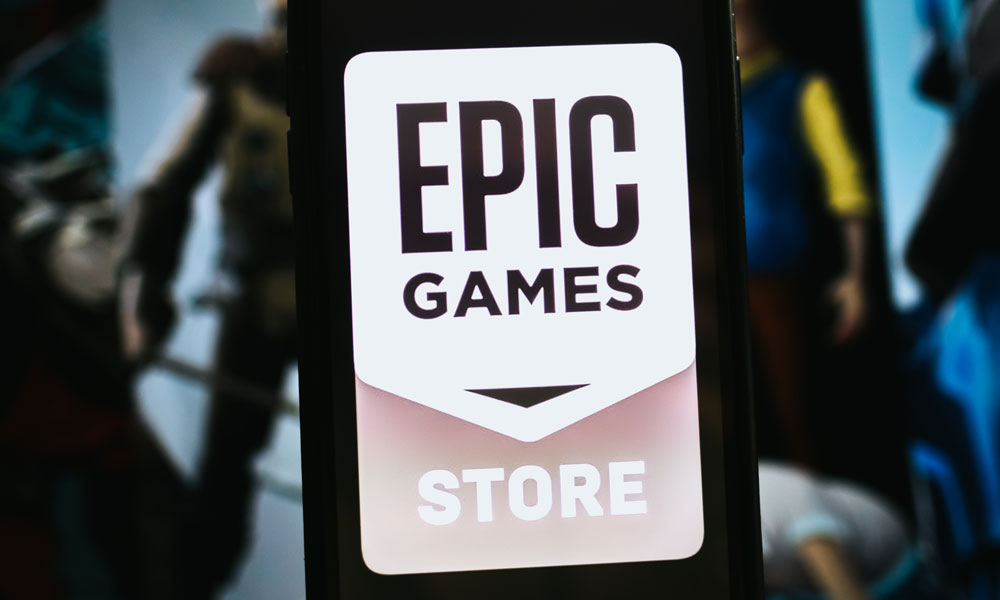Apple Relents and Reinstates Epic Games’ Developer Account
 Credit: nikkimeel / Shutterstock
Credit: nikkimeel / ShutterstockToggle Dark Mode
In another sudden twist in the Epic European Apple saga, the iPhone maker has reversed its earlier decision to terminate Epic Games’ developer account in the EU, paving the way for Fortnite to return to the iPhone via Epic’s app marketplace.
The first report of Epic’s reinstatement came from the company itself, which updated its blog post from earlier this week, citing a “public backlash for retaliation” as the motive for Apple’s sudden change of heart.
Apple has told us and committed to the European Commission that they will reinstate our developer account. This sends a strong signal to developers that the European Commission will act swiftly to enforce the Digital Markets Act and hold gatekeepers accountable. We are moving forward as planned to launch the Epic Games Store and bring Fortnite back to iOS in Europe. Onward!
Apple was slightly more circumspect, saying in a statement to the media that Epic simply agreed to follow the rules.
Following conversations with Epic, they have committed to follow the rules, including our DMA policies. As a result, Epic Sweden AB has been permitted to re-sign the developer agreement and accepted into the Apple Developer Program.
Nevertheless, it’s impossible to dismiss the mounting pressure from the European Commission, which was decidedly not amused with Apple’s decision, equating it to using bullying tactics to silence one of the most vocal opponents of its App Store policies.
That’s especially true in light of comments from both Apple Fellow Phil Schiller and the company’s lawyers that Epic Games shared on its website, who clearly felt that whatever Epic CEO Tim Sweeney could offer as proof of his company’s noble intentions wouldn’t be good enough.
As far as we can tell, Epic flew in below the radar when it was approved for a developer account last month, assuming its acceptance was tacit approval by Apple’s senior leadership and that all was forgiven. Unfortunately for Epic, that wasn’t quite true; once those in the upper echelons of Apple noticed Epic was back in the camp through its Swedish subsidiary, they got nervous and questioned whether they’d be able to trust the company in light of the stunt it pulled with Fortnite nearly four years ago.
App Store Czar Phil Schiller initially seemed cautiously open to Epic proving its sincerity, and Sweeney’s response was brief but reasonably conciliatory. However, instead of a reply from Schiller, Epic received a “lawyered-up” response a few days later, declaring their newly minted developer account terminated with language that was final and brooked no opposition or room for appeal.
Perhaps Apple moved too hastily and simply saw the error of its ways, but it seems more likely that it decided that this wasn’t a battle worth fighting after the European Commission (EC) got involved. While Sweeney suggests this resulted from a “swift inquiry” by the EC, and European Commissioner Thierry Breton declared it “a matter of priority,” bureaucracies measure their “priorities” in days or weeks, not mere hours.
The most likely interpretation is that Apple saw the writing on the wall and knew this wasn’t a battle it was going to win — at least not without some collateral damage. As a result, it went back to the table with Epic to give the Fortnite developer another opportunity to convince Apple that it would play by the rules this time.
While Epic’s CEO continues to be highly critical of Apple’s response to the new European rules, referring to them as “malicious compliance” and “hot garbage,” his company has technically achieved its goal of running an independent app marketplace on the iPhone, which is what the war between the two companies has ultimately been about all along.
In a June 2020 email to Tim Cook, Phil Schiller, Craig Federighi, and App Store VP Matt Fischer, Sweeney explicitly asked the Apple executives to allow it to set up “a competing Epic Games Store app available through the iOS App Store and through direct installation that has equal access to underlying operating system features for software installation and update as the iOS App Store itself has, including the ability to install and update software as seamlessly as the iOS App Store experience,” along with alternative in-app payment options in its games that would be free of Apple’s fees.
When Apple said no, Sweeney chose to try and force the company’s hand by sneaking his own direct payment system into Fornite, resulting in its subsequent ban from the App Store and the first salvo in the three-year legal battle between the two companies.
Thanks to the EU’s Digital Markets Act, Sweeney has gotten almost everything he was asking for, at least in Europe. It may not be exactly the way he envisioned it, but Epic Games will be able to run its own alternative app marketplace in the EU, with the only requirement being that it play by a few of Apple’s rules and pay a Core Technology Fee of 0.50 Euros for each install of its app marketplace or any of its apps that are distributed that way. However, Epic won’t be required to give Apple any cut of in-app purchases made through Fortnite or any of its other games, as long as those games aren’t distributed on Apple’s App Store.






